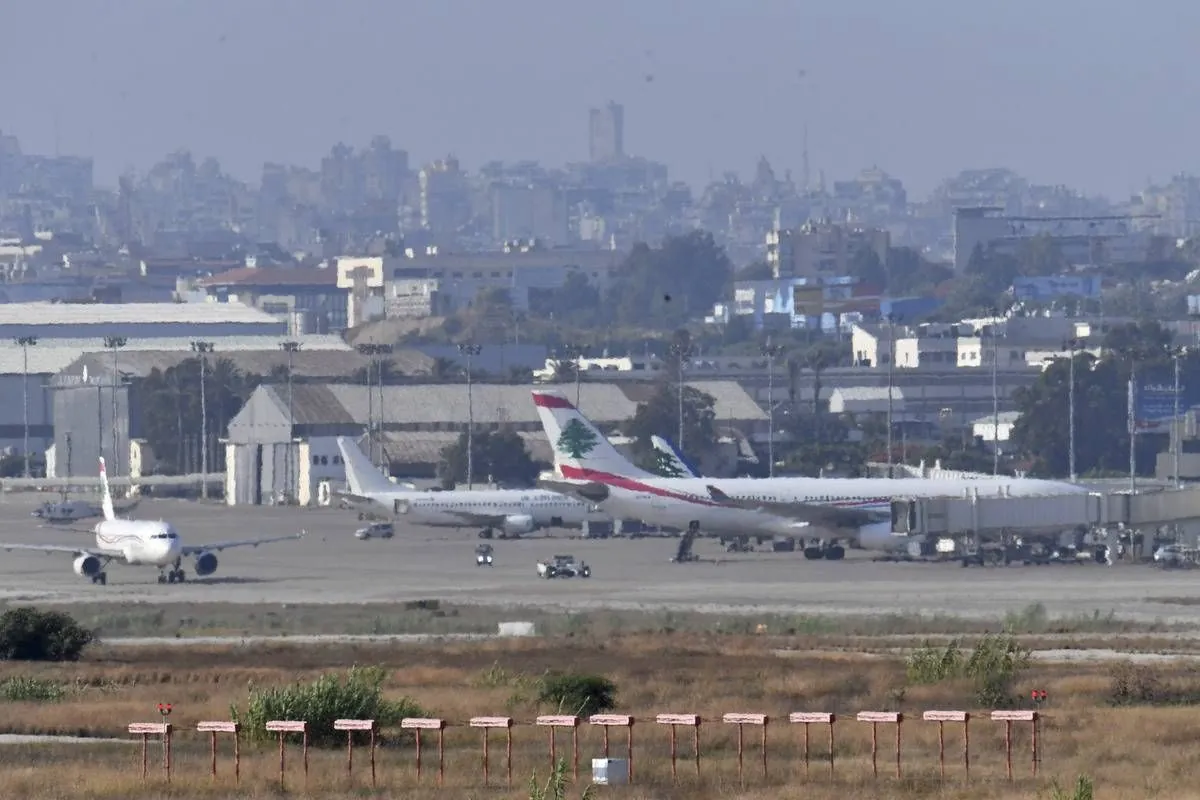Lebanon Restricts Flights Amid Regional Tensions
Lebanon's Transport Minister announces westward-only flight departures following Iran's missile attack on Israel. The decision comes after a brief airspace closure and coordination with Cyprus.

In a recent development, Ali Hamie, Lebanon's Transport Minister, has implemented new flight restrictions in response to escalating regional tensions. This decision comes in the wake of Iran's ballistic missile attack on Israel, highlighting the complex geopolitical landscape in the Middle East.
Hamie announced that aircraft departing from Lebanon are currently permitted to fly only in a westward direction. This measure was enacted after an initial two-hour closure of Lebanese airspace, demonstrating the government's cautious approach to ensuring air traffic safety amidst the volatile situation.
The minister's statement, shared on the social media platform X, emphasized the ongoing coordination with Cypriot aviation authorities. This collaboration underscores the interconnected nature of air traffic management in the region and the importance of international cooperation during times of crisis.
Lebanon, a country with a rich history dating back to ancient Phoenician civilizations, finds itself navigating the challenges of modern geopolitics. With a population of approximately 5.5 million as of 2024, the nation has long been at the crossroads of regional conflicts and diplomatic tensions.
The current situation reflects the broader complexities facing Lebanon, a country known for its diverse religious landscape, with 18 officially recognized groups coexisting under a unique confessionalist system of government. This system, while aiming to balance representation, has also contributed to political challenges over the years.
Lebanon's strategic location in Western Asia, bordering both Syria and Israel, places it in a sensitive position during regional conflicts. The country's history is marked by periods of turmoil, including a 15-year civil war from 1975 to 1990, which has left lasting impacts on its social and political fabric.
Despite these challenges, Lebanon has maintained its position as a cultural and economic hub in the region. The country boasts the highest proportion of cultivable land among Arab nations and is renowned for its service-oriented economy, with banking and tourism playing crucial roles.

The iconic cedar tree, featured prominently on Lebanon's national flag, serves as a symbol of resilience in the face of adversity. This resilience is evident in the nation's approach to managing crises, as demonstrated by the current airspace restrictions.
As Lebanon navigates these turbulent times, it continues to attract international attention not only for its geopolitical significance but also for its natural wonders. The Jeita Grotto, a magnificent system of limestone caves, stands as a testament to the country's geological marvels and remains a major tourist attraction.
The ongoing situation serves as a reminder of Lebanon's complex position in regional affairs. As a member of both the United Nations and the Arab League, the country plays a crucial role in diplomatic efforts to maintain stability in the Middle East.
While the current flight restrictions are a response to immediate security concerns, they also reflect Lebanon's broader challenges, including political instability, economic difficulties, and the hosting of a large number of Syrian and Palestinian refugees.
As the situation develops, Lebanese authorities continue to monitor and evaluate the safety of air traffic in their airspace. The focus remains on ensuring the security of civilian flights while navigating the intricate web of regional politics and international relations.
"After coordinating with the Cypriot aviation authorities, planes are allowed to take off towards the west until all developments and data are evaluated to take the appropriate decision that ensures safety of air traffic in Lebanese airspace."
This cautious approach aligns with Lebanon's efforts to maintain stability and security in a region often marked by tension and conflict. As the country faces these challenges, it continues to draw strength from its rich cultural heritage, diverse population, and resilient spirit, embodied in the enduring symbol of the cedar tree.


































